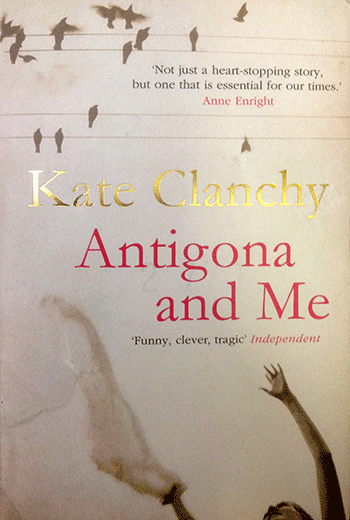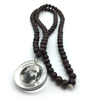Antigona and Me

A book review by Madhuri; “It’s a good story … well worth reading – very well-written, compassionate, gripping, thorough.”
Antigona and Me
by Kate Clanchy
2008, Picador
273 pages
amazon.com
This extraordinary book was written by a British poet who came from privilege, regarding a Kosovoan war refugee she employed as cleaner and nanny: Antigona.
With detail, compassion, humanity, and grace, Kate Clanchy describes not only where Antigona came from – a medieval mountain fastness where women labour like beasts to plough, spin, dig, weave, cook, bear children, wash their few handspun clothes, and all the rest of it – while the men do a lot of vendetta-ing, wife-beating, wife-raping, and the occasional massacre – but also the close relationship Kate and Antigona developed, what happened to Antigona in the UK; and the amazing use she made of that opportunity.
What chilled my blood the most was the impact throughout of a piece of 14th-century Tribal Law called the Kanun of Lek, which the highlanders, the mountain people of the Malesi, follow religiously. They are not Christians or Muslims really; they are in thrall to this Kanun – which is about as vile a piece of social engineering as you can imagine – the usual women-as-property, no-penalty-for-wife-murder, blood-feud, honour-of-the-family-through-the-cult-of-virginity, nonsense; but somehow heightened by the remote, hardscrabble location and the fact that the women are not only oppressed but must wrest a living out of the rocks and dirt – all day every day.
Naturally this makes for unhappy, angry, dissatisfied men; how can one sex be happy if the other is denied its very dignity, truth, and sometimes life? This obvious equation seems not to have occurred to the proponents of such systems; I guess a miserable male populace as well as an angry, repressed female one seems a small price to pay to keep in check the wildness of the female. Where do people get these ideas?
And then, as always happens, the women, unconscious as humans do so tend to be, can be the harshest enforcers of the Kanun. Antigona and her daughters, living in England, are obsessed with virginity – who is, who isn’t – and Kate says in exasperation, “How can a lack of experience be good?” Kate is also freaked out by the bald and vicious racism the Kosovoans evince.
It’s a good story – I won’t give away what happens, but it’s well worth reading – very well-written, compassionate, gripping, thorough.
Though Ms Clanchy nowhere mentions meditation, what I came away with was a fervent gratefulness for Tantra: and I hope not to take for granted any advert I see on Facebook for some Goddess group or Soulmate training or whatever. These things are precious, they are so needed, they are one of the best hopes of the planet. In meditating together, men and women can finally enter the subtle – and as Keats said, “In subtlety is delight.” It is this awareness, this heightened awakening to what is, that gets us out of the inherited nonsense of the clumsy, obtuse, fanatical, violent, mind-bound conditioning.
Long may Tantra live.
Madhuri is a healer, artist, poet and author of several books, Mistakes on the Path being her latest memoir. madhurijewel.com
- Log in to post comments
- 8 views
